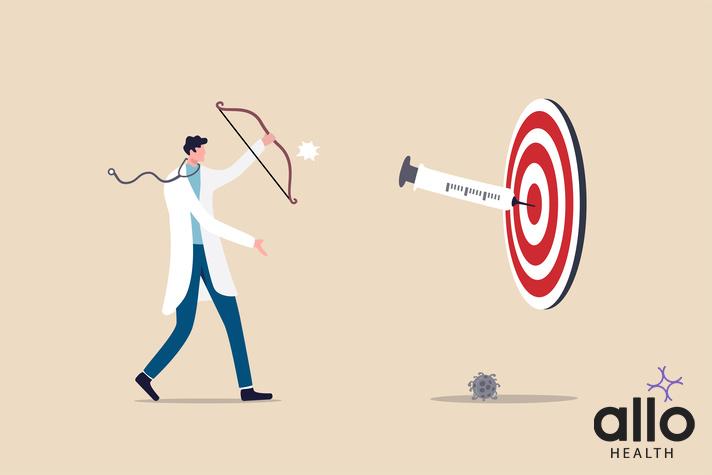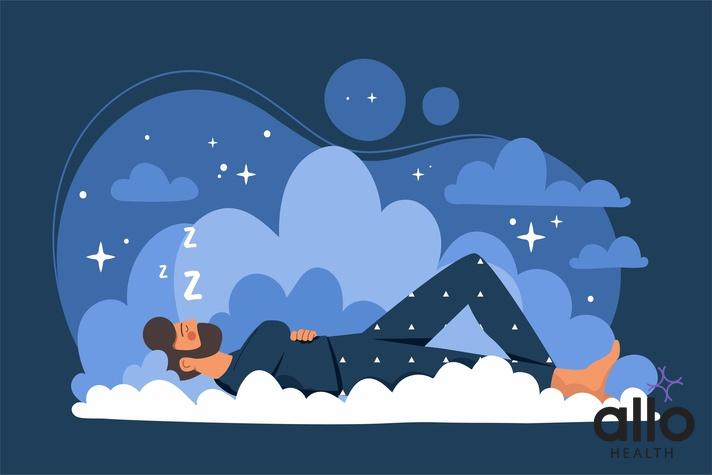Unlocking the Mystery: At What Age Does a Man Start Ejaculating?

"The following blog article provides general information and insights on various topics. However, it is important to note that the information presented is not intended as professional advice in any specific field or area. The content of this blog is for general educational and informational purposes only.
Book consultation
The content should not be interpreted as endorsement, recommendation, or guarantee of any product, service, or information mentioned. Readers are solely responsible for the decisions and actions they take based on the information provided in this blog. It is essential to exercise individual judgment, critical thinking, and personal responsibility when applying or implementing any information or suggestions discussed in the blog."
Embarking on a journey to understand the intricate nuances of male development, we delve into the pivotal question: At what age does a man begin to ejaculate? This inquiry not only holds scientific significance but also touches upon the broader aspects of human sexuality and maturation. By synthesizing empirical research and clinical insights, this article aims to shed light on this enigmatic phenomenon, offering clarity and understanding to readers curious about this fundamental aspect of male physiology.
Masturbation is Completely Natural
- A masturbation habit is a normal and healthy part of human sexuality, experiencing wet dreams is casual.
- It allows individuals to explore their bodies and learn about their sexual preferences.
- Masturbation can provide stress relief and promote relaxation.
- It is a safe alternative to sexual activity, reducing the risk of sexually transmitted infections.
- Masturbation can enhance sexual satisfaction and sexual intimacy in relationships.
- Many medical professionals affirm its benefits for physical and mental well-being.
- Cultural taboos surrounding masturbation are increasingly being challenged, promoting open and honest discussions about sexual health myths.
- Overall, understanding and accepting masturbation as a natural aspect of human sexuality contributes to individual empowerment and sexual well-being.
Onset of Ejaculation
The onset of ejaculation marks a significant physiological event in human sexual response.
- It typically occurs during male orgasm, involving the release of semen from the penis during masturbation or sexual intercourse.
- Ejaculation is regulated by the sympathetic nervous system, triggered by sexual arousal.
- Various factors can influence the timing and intensity of ejaculation, including psychological and physical factors.
- Premature ejaculation, characterized by early or uncontrollable ejaculation, can impact sexual satisfaction and relationships.
- Delayed ejaculation, where ejaculation is difficult to achieve, may also pose challenges in sexual functioning.
- Understanding the onset of ejaculation is crucial in addressing sexual dysfunctions and improving sexual health and satisfaction.
- Techniques such as mindfulness, communication, and behavioral interventions can help manage ejaculation-related concerns effectively.
- Research continues to explore the mechanisms underlying ejaculation and develop targeted interventions for individuals experiencing difficulties.
Reasons Why Some People Choose Not to Masturbate

- Cultural or Religious Beliefs: Certain cultural or religious beliefs may consider masturbation or nocturnal emission taboo or morally wrong, leading individuals to abstain from it.
- Personal Preferences: Some individuals simply don’t feel the desire or inclination to masturbate, viewing it as unnecessary or uninteresting.
- Lack of Interest: For some, the idea of self-stimulation may not hold any appeal, and they may find other activities more fulfilling.
- Health Concerns: Individuals with certain medical conditions or physical limitations may find masturbation uncomfortable or impossible.
- Relationship Status: People in satisfying romantic relationships may prefer to prioritize intimacy with their partners over solitary sexual activity.
- Mental Barriers: Psychological factors such as guilt, shame, or trauma may deter some individuals from engaging in masturbation.
- Personal Values: Some people may abstain from masturbation due to personal values or principles they hold regarding sexual behavior.
Physical Changes a Man Experience
Male sexual development entails physical changes and is a sign of puberty accompanying ejaculation, crucial for reproductive function and maturity caused by the adrenal glands.
- Puberty in boys triggers testicular growth, beard growth, pubic hair growth, sperm production, and testosterone levels.
- Hormone testosterone facilitates reproductive organs such as penis size maturation and initiates ejaculation of sperm as well.
- Penis enlargement occurs due to increased blood flow and erectile tissue expansion, enhancing sexual function.
- Secondary sexual characteristics, like facial, pubic, and underarm hair growth, accompany puberty.
- Deepening voice, muscle development, and body composition changes signify sexual maturation.
- Ejaculation involves rhythmic pelvic contractions propelling semen out of the penis.
- Pleasure and release sensations accompany ejaculation, varying in intensity and duration.
- Semen volume fluctuates based on factors like sexual activity frequency and overall health.
- Semen comprises sperm and fluids from seminal vesicles, prostate gland, and bulbourethral glands, with varying consistency and color.
Nocturnal Emission

- Nocturnal emission, or “wet dreams,” is a natural part of male sexual development.
- It involves spontaneous ejaculation during sleep, often accompanied by sexual dreams and aroused sexual excitement.
- Common during adolescence, it decreases as individuals gain control over the ejaculation process.
- Nocturnal emissions help regulate semen production and release, preventing excess buildup.
- They provide an outlet for sexual energy during periods of inactivity or abstinence.
- Their occurrence does not signify sexual health or fertility complications.
- Nocturnal emissions are considered normal and healthy, not affecting overall semen volume or sexual function.
Factors Influencing Ejaculation
Ejaculation, the release of semen during sexual activity, is influenced by various factors affecting timing, intensity, and overall experience.
- Hormonal Levels: Testosterone, the primary male sex hormone, regulates ejaculation. Imbalances or medical conditions affecting hormone levels can impact ejaculation.
- Psychological Factors: Sexual arousal, emotional state, and stress levels influence ejaculation timing and intensity. Anxiety and relationship troubles may contribute to premature ejaculation.
- Sexual Experience: Understanding one’s sexual response and good communication with partners enhance ejaculation satisfaction. Exploring techniques and sensations can improve control.
- Health and Lifestyle Factors: Overall health, exercise, diet, and sleep affect sexual function, including ejaculation. Substance abuse and certain medical conditions may negatively impact ejaculation or may lead to erectile dysfunction.
- Relationship Dynamics: Open communication, trust, and emotional intimacy support satisfying sexual experiences. Relationship conflicts can create stress interfering with ejaculation.
- Sexual Stimulation: Different types and intensities of sexual stimulation influence ejaculation. Understanding preferences and experimenting with techniques can optimize ejaculation.
- Variability and Consultation: Ejaculation patterns vary among individuals and may change over time. Persistent concerns warrant consultation with healthcare or sexual health professionals for guidance and appropriate treatment.
Common Concerns
Premature Ejaculation:
Inability to control ejaculation, leading to frustration and embarrassment.
- Causes: Psychological factors, relationship conflicts, hypersensitivity.
- Solutions: Seek guidance from healthcare providers for techniques and therapies.
Delayed Ejaculation:
Difficulty reaching ejaculation despite stimulation.
- Causes: Psychological factors, medications, hormonal imbalances, mood swings, health conditions.
- Solutions: Consult healthcare providers for identification and treatment options.
Retrograde Ejaculation:
Semen is redirected into the bladder instead of expulsion.
- Causes: Medical conditions, medications, and surgical procedures affecting muscles or nerves.
- Solutions: Medical advice is crucial for determining causes and discussing treatment.
Variation in Ejaculation Volume:
Varies among individuals, not correlated with fertility.
- Influencing Factors: Frequency of ejaculation, hydration levels, overall health.
- Solutions: Discuss concerns with healthcare providers for reassurance and guidance for maintaining the quality of sex life.
- Seek Professional Advice: Sexual development experiences vary, seek help for persistent concerns and improve quality of life.
- Importance of Healthcare Providers: Provide guidance, address concerns, and offer support, and treatment options.
Tips For First-Time Masturbation

- Comfort: Find a private, comfortable space where you won’t be interrupted.
- Relaxation: Take deep breaths and relax your body to ease any tension.
- Exploration: Experiment with different techniques and touch to discover what feels pleasurable.
- Lubrication: Consider using lubricants to enhance sensation and reduce friction.
- Communication: Don’t hesitate to communicate with your partner if you’re comfortable, discussing preferences can enhance mutual pleasure.
- Variety: Try different positions and stimulate various erogenous zones to explore what pleases you.
- Patience: Don’t rush the experience; take your time to enjoy the sensations and explore your body increase the frequency of masturbation slowly.
- Self-care: Afterward, practice self-care by hydrating, cleaning up, and allowing yourself time to relax and process the experience.
- Respect: Remember to respect your boundaries and only engage in activities that feel comfortable and consensual.
The Benefits and Drawbacks of Not Ejaculating for Physical Health

Benefits
- Improved Energy Levels: Not masturbating may lead to increased energy levels, as the body conserves energy that would otherwise be expended during the act.
- Enhanced Focus and Clarity: Abstaining from masturbation can result in improved mental clarity and focus, as it eliminates potential distractions and allows for better concentration on tasks.
- Balanced Hormonal Levels: Avoiding frequent masturbation may help maintain balanced hormonal levels, which can positively impact overall physical health and well-being.
- Better Sleep Quality: Some individuals report experiencing improved sleep quality when abstaining from masturbation, possibly due to reduced arousal and better regulation of sleep hormones.
Drawbacks
- Potential Increase in Stress Levels: For some individuals, not masturbating may lead to heightened levels of stress or tension, as masturbation can serve as a natural stress reliever for many.
- Risk of Prostate Issues: Regular ejaculation, including through masturbation, may help reduce the risk of prostate problems such as inflammation or cancer. Not masturbating could potentially increase this risk.
- Possible Sexual Frustration: Abstaining from masturbation might lead to sexual frustration for some individuals, which could negatively impact mood and overall well-being if not managed effectively.
- Difficulty in Achieving Orgasm: In some cases, abstaining from masturbation for extended or average periods may lead to difficulties in achieving orgasm during sexual play, which could affect sexual satisfaction and intimacy.
Conclusion
In conclusion, the journey to understanding male ejaculation is multifaceted and complex. Through exploring various factors such as hormonal changes, psychological development, and societal influences, we have gained valuable insights into this physiological process. While pinpointing an exact age when ejaculation begins may remain elusive, our exploration sheds light on the intricate interplay of biological and environmental factors shaping male sexual development. As our understanding evolves, so too does our ability to provide informed guidance and support for individuals navigating this aspect of their reproductive health journey.
Most Asked Questions
-
What is the typical age range for boys to start ejaculating?
Most boys begin to experience ejaculation between the ages of 12 and 16, although variations exist.
-
Are there any factors that can influence the age of onset for ejaculation?
Yes, factors such as genetics, hormonal fluctuations, and environmental influences can play a role in when a boy starts ejaculating.
-
Is it concerning if a boy hasn't ejaculated by a certain age?
While the average age range provides a guideline, individual differences are common. Consultation with a healthcare provider is recommended if there are concerns about delayed development.
-
Can early ejaculation be a sign of a health issue?
Early ejaculation, particularly before puberty, may warrant medical attention to rule out underlying conditions affecting hormonal balance or reproductive development.
-
How can parents approach discussions about ejaculation with their sons?
Open, honest conversations in a supportive environment can help boys understand the changes their bodies undergo during puberty, including ejaculation. Providing accurate information and addressing questions can alleviate anxieties and promote healthy development.







































